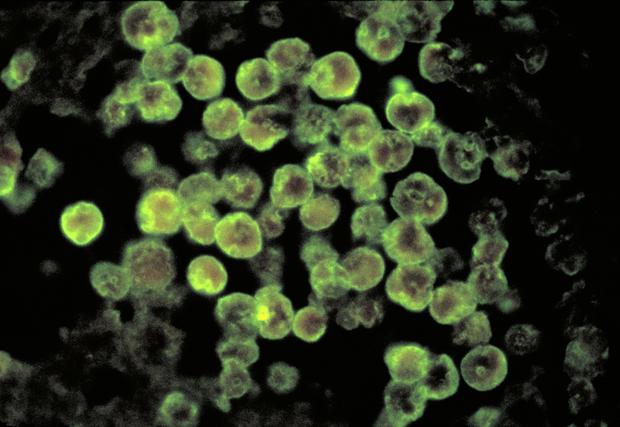Child dies of brain-eating amoeba likely contracted at Texas splash pad, officials say
[ad_1]
A Texas child who died after contracting a rare, brain-eating amoeba was likely infected at a local splash pad, the City of Arlington announced in a press release Monday. Records from the Don Misenhimer Park splash pad showed employees did not consistently monitor water quality levels at the time of the child’s visits to the park, the city said.
On September 5, local health officials were notified that a child was hospitalized at Cook Children’s Medical Center with “primary amebic meningoencephalitis, a rare and often fatal infection caused by the Naegleria fowleri ameba,” the press release said.
The child died in a hospital on September 11. Their name has not been released.
Tarrant County Public Health determined the child was likely exposed to water containing the Naegleria fowleri ameoba either at the family’s home or at the park’s splash pad, the city’s statement said. On Friday, the CDC confirmed the presence of active Naegleria fowleri amoeba in water samples from the splash pad and from the system that supplies water to the area that were taken between September 10 and September 14, leading officials to conclude that the child was likely exposed there.
Upon inspecting the park’s records, city officials found that employees did not document water quality readings on two of the three days the child visited the splash pad in late August and early September, the statement said. Levels of chlorine, a chemical used to disinfect the water at the pad, were within the state’s requirement two days before the child last visited, but a reading the day after the visit showed the levels had fallen below the requirement, according to the statement. Chlorine was added to the water system at that time, the park’s records show.
Getty Images
The splash pad has been closed since officials were notified of the child’s hospitalization, and the investigation is ongoing. City officials are reviewing “splash pad equipment and supplies, maintenance, and water quality inspection policies, procedures and training to ensure safe recreational spaces for residents and visitors,” the statement said.
All of Arlington’s splash pads had passed their annual inspection at the start of the summer. However, records from the Don Misenhimer Park and another Arlington park showed employees “did not consistently record, or in some cases did not conduct, water quality testing that is required prior to the facilities opening each day,” including checking for chlorine, the press release said.
The city’s investigation also found that in certain instances when chlorine level readings were below minimum requirements, employees did not record how much chlorine they manually added to the water system. “The logs also did not consistently include a follow-up reading to confirm that the water chlorination levels were at acceptable levels after treatment,” the press release said.
“We have identified gaps in our daily inspection program,” Deputy City Manager Lemuel Randolph said. “Those gaps resulted in us not meeting our maintenance standards at our splash pads. All of the splash pads will remain closed until we have assurance that our systems are operating as they should, and we have confirmed a maintenance protocol consistent with city, county and state standards.”
City officials said that the risk of infection from the amoeba is “very low,” noting that the CDC says there have only been 34 reported cases of infection between 2010 and 2019.
“N. fowleri infects people when water containing the ameba enters the body through the nose. This typically occurs when people go swimming or diving in warm freshwater places, such as lakes and rivers. In very rare instances, the ameba has been identified in other sources, such as inadequately chlorinated swimming pool water or heated and contaminated tap water,” the statement said.
Arlington officials said the city’s drinking water was not affected.
Download our Free App
For Breaking News & Analysis Download the Free CBS News app
[ad_2]
Source link











